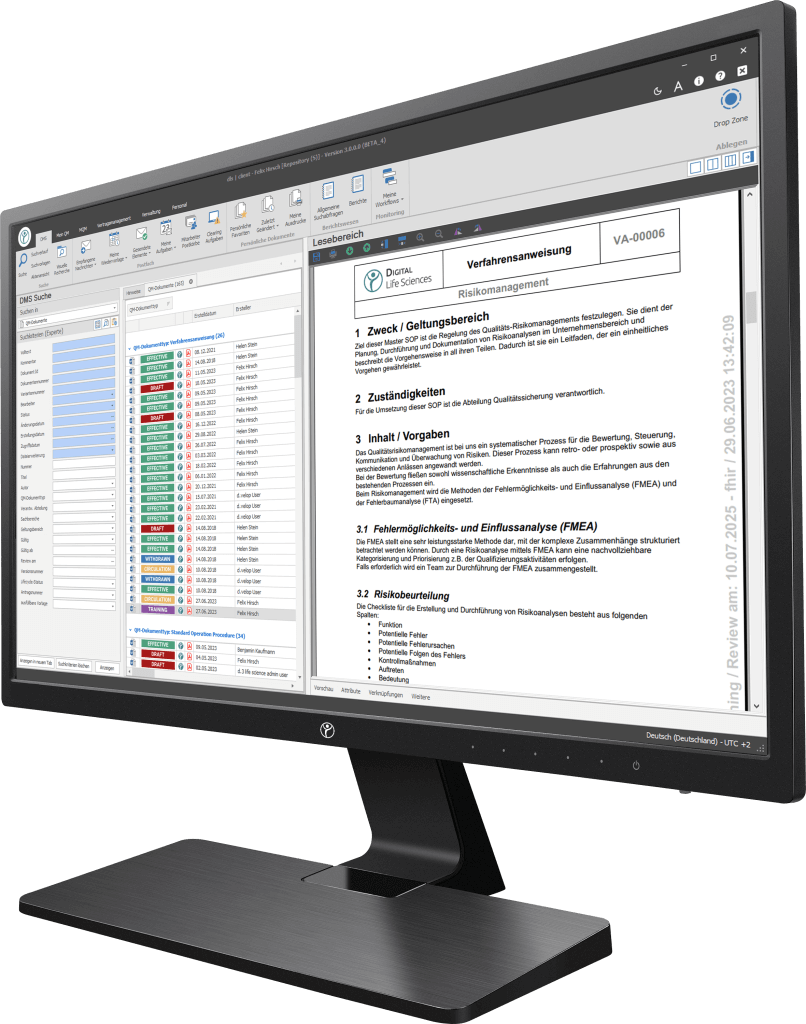Definition of the term (“What is a specification?”)
A specification contains a specified description by the contractor of how they intends to solve the contracting entity’s requirements. As a preceding instance, however, the contracting entity must specify as precisely as possible the requirements to be developed by means of a specification . Thus, it can be deduced that the contracting entity should first accept the specification before the contractor starts with the implementation.
Furthermore, it is common practice to apply the inclusion and exclusion principle when generating a specification to explicitly omit or include special cases. With regard to software development, the requirements specification is defined in the V‑model, among other things.
What is the purpose of a specification?
The specification has several purposes, including:
- Setting clear expectations: It helps clarify the contracting entity’s expectations for the project or task.
- Avoiding misunderstandings: The detailed description of the requirements minimizes the risk of misunderstandings.
- The basis for offers: Based on the specification, contractors can prepare accurate quotations.
What are the components of a specification?
A specification consists of several important elements:
- Project description: This is where the project or task is described in full detail. It includes the scope, objectives, and desired outcomes.
- Time frame: The time frame specifies when the project is to be completed. This is critical to avoid delays.
- Budget: The budget describes the financial constraints and resources available for the project.
Your path to digitization — Discover our software
Our digitization solutions primarily address document-based processes in manufacturing, production and quality management. The basis of the dls | eQMS is a holistic ECM/DMS system. The ECM/DMS system can be connected to your existing ERP system (e.g. SAP) and thus map almost all document-based processes in the company.

What is important when creating a specification?
- Collaboration: The preparation of a specification often requires close cooperation between the contracting entity and the contractor. Both parties must clearly communicate their expectations and concerns.
- Detailed analysis: A thorough analysis of requirements is essential to ensure that nothing is overlooked.
- Revision: The specification should be revised to ensure accuracy and completeness.
Where do we encounter a specification in practice?
Specifications are used in a variety of industries, including construction, IT, and engineering. They serve as a guidline for the implementation of projects and tasks.
Conclusion
A specification is an indispensable tool in the business world for establishing clear agreements between contracting entities and contractors. It helps to avoid misunderstandings and to ensure the success of projects.
Start your digital transformation with our powerful, modular software solutions
Frequently Asked Questions (FAQs)
What happens if the specification is incomplete?
If the specification is incomplete, it can lead to misunderstandings and delays in the project. It is important to carefully revise and to perfect it.
Who is responsible for creating a specification?
As a rule, both the contracting entity and the contractor are responsible for preparing the specifications. It requires close cooperation.
Can the specifications be changed during the project?
Yes, the specification can be changed during the project, but such changes should be carefully documented and communicated.
What role does a specification play in budget planning?
The specification is crucial for budget planning as it defines the financial requirements of the project.
Why is a specification so important for the success of a project?
A specification is important to set clear expectations and avoid misunderstandings, which ultimately ensures project success.
